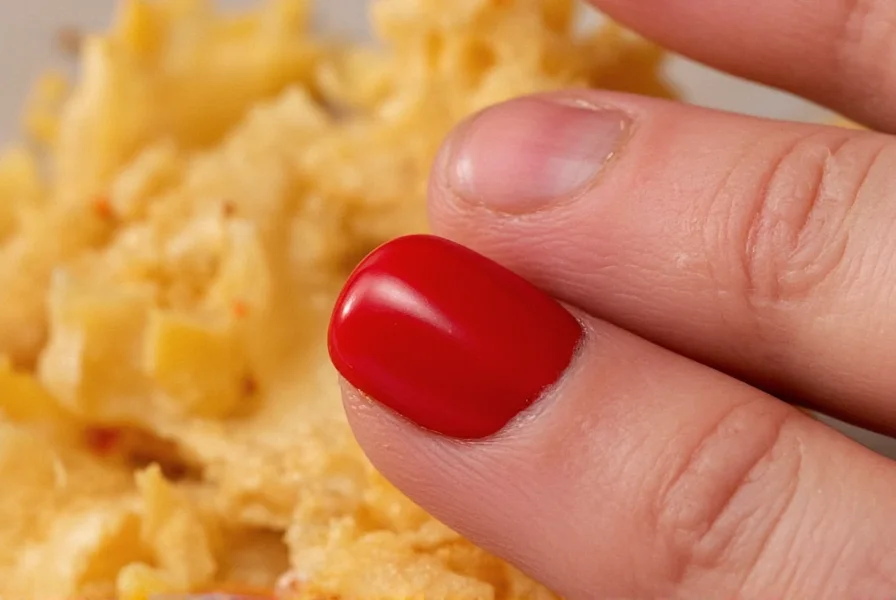Understanding the relationship between ginger and blood thinning is crucial for anyone managing cardiovascular health or preparing for medical procedures. This comprehensive guide examines the scientific evidence behind ginger's effects on blood coagulation, potential medication interactions, and practical recommendations for safe consumption.
The Science Behind Ginger's Blood-Thinning Effects
Ginger contains several bioactive compounds that influence blood coagulation. The primary components responsible for its anticoagulant properties include gingerols, shogaols, and zingerone. These compounds work through multiple mechanisms:
- Inhibition of thromboxane synthesis - Reduces platelet aggregation
- Salicylate content - Similar to aspirin's blood-thinning action
- Antioxidant properties - May improve overall cardiovascular function
- Effects on fibrinolysis - May enhance the body's natural clot-dissolving processes
Research published in the Journal of Medicinal Food demonstrates that ginger extract significantly reduced platelet aggregation in laboratory studies. However, the concentration used in these studies far exceeds typical dietary intake from culinary ginger.
Ginger Consumption: Culinary vs. Medicinal
It's essential to distinguish between normal dietary consumption and therapeutic supplementation when considering ginger's blood-thinning effects:
| Consumption Type | Typical Amount | Blood-Thinning Risk | Recommendation |
|---|---|---|---|
| Culinary use (fresh) | 1-2 inches per day | Minimal | Generally safe for most people |
| Ginger tea | 2-3 cups daily | Low | Monitor if on blood thinners |
| Ginger supplements | 250-1000mg daily | Moderate to High | Consult physician if on anticoagulants |
| Ginger extract | Concentrated forms | High | Avoid before surgery or with blood thinners |
Medication Interactions to Consider
Ginger's blood-thinning properties become particularly important when considering interactions with prescription medications. The most significant concerns involve:
- Warfarin (Coumadin) - Ginger may enhance warfarin's effects, increasing bleeding risk
- Aspirin - Combined effects may increase bleeding tendency
- NSAIDs (like ibuprofen) - Potential additive effects on bleeding risk
- Other anticoagulants (dabigatran, rivaroxaban, apixaban) - Theoretical interaction risk
A case report in the Journal of Pharmacy and Bioallied Sciences documented a patient experiencing increased INR levels after consuming ginger tea while taking warfarin. While individual responses vary, this highlights the importance of monitoring when combining ginger with blood-thinning medications.
Practical Recommendations for Safe Consumption
Based on current evidence, here are evidence-based recommendations for different situations:
For General Health Maintenance
Consuming moderate amounts of ginger through food or tea (about 1-2 grams daily) poses minimal risk for most healthy individuals. This amount provides potential anti-inflammatory benefits without significant blood-thinning effects.
When Taking Prescription Blood Thinners
If you're taking anticoagulant medications like warfarin, discuss ginger consumption with your healthcare provider. They may recommend:
- Maintaining consistent ginger intake (avoiding fluctuations)
- Regular INR monitoring if consuming ginger regularly
- Limited consumption (no more than 1g daily from all sources)
- Avoiding concentrated supplements entirely
Before Surgical or Dental Procedures
Most healthcare providers recommend discontinuing ginger supplements at least 7-10 days before surgery or invasive dental procedures. This precaution helps minimize bleeding risks during and after the procedure.
Special Considerations
Certain populations require extra caution with ginger consumption:
- People with bleeding disorders - Ginger may exacerbate conditions like hemophilia
- Those scheduled for surgery - Stop supplements at least one week beforehand
- Pregnant women - High doses may increase miscarriage risk due to blood-thinning effects
- Individuals with gallstones - Ginger may increase bile production
Evidence-Based Conclusion
While ginger does exhibit mild blood-thinning properties through several biological mechanisms, the risk depends significantly on the form and amount consumed. Culinary use typically presents minimal risk, but concentrated supplements can interact with anticoagulant medications and increase bleeding risk. Always consult with your healthcare provider before combining ginger supplements with blood-thinning medications or before surgical procedures.
Frequently Asked Questions
Can I drink ginger tea while taking warfarin?
You can drink moderate amounts of ginger tea (1-2 cups daily) while taking warfarin, but you should maintain consistent consumption and monitor your INR levels. Large amounts or sudden increases in ginger intake may affect warfarin's effectiveness. Always consult your healthcare provider for personalized advice regarding ginger and warfarin interaction.
How long before surgery should I stop taking ginger supplements?
Most healthcare providers recommend stopping ginger supplements at least 7-10 days before surgery or any invasive procedure. This precaution allows the blood-thinning compounds in ginger to clear your system and reduces bleeding risk during and after the procedure. Always follow your surgeon's specific instructions regarding supplement discontinuation.
Is fresh ginger safer than ginger supplements for blood thinning concerns?
Yes, fresh ginger is generally safer than supplements when concerned about blood thinning. The concentration of active compounds in fresh ginger used in cooking (about 1-2 inches daily) is much lower than in standardized supplements. Supplements often contain concentrated extracts with significantly higher levels of gingerols that can have more pronounced blood-thinning effects.
What are the signs that ginger might be thinning my blood too much?
Signs of excessive blood thinning from ginger include unusual bruising, prolonged bleeding from minor cuts, frequent nosebleeds, bleeding gums, or blood in urine or stool. If you experience these symptoms while consuming large amounts of ginger or ginger supplements, especially while taking blood-thinning medications, contact your healthcare provider immediately.
Can ginger replace prescription blood thinners?
No, ginger cannot safely replace prescription blood thinners. While ginger has mild anticoagulant properties, it lacks the consistent, measurable effects required for medical treatment of conditions requiring blood thinning. Never discontinue prescribed blood thinners in favor of ginger or any other natural remedy without consulting your healthcare provider, as this could lead to serious health complications.











 浙公网安备
33010002000092号
浙公网安备
33010002000092号 浙B2-20120091-4
浙B2-20120091-4